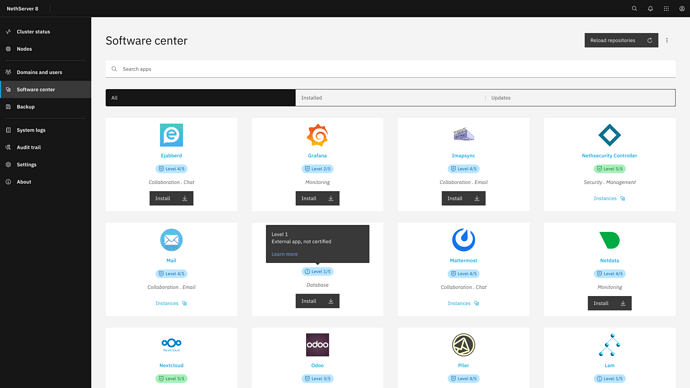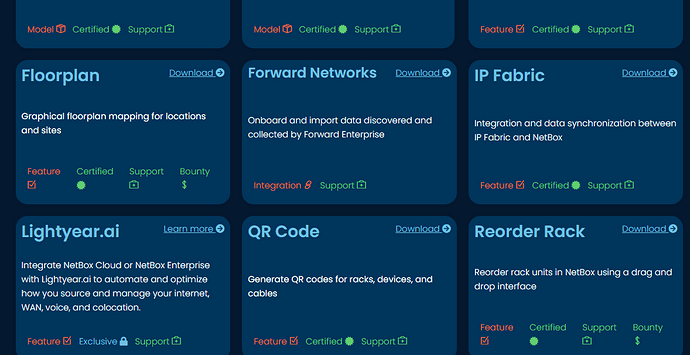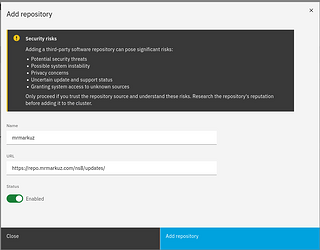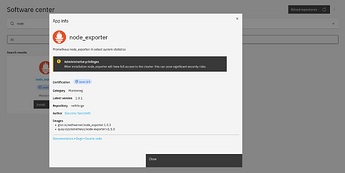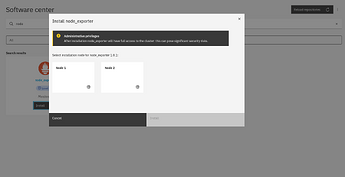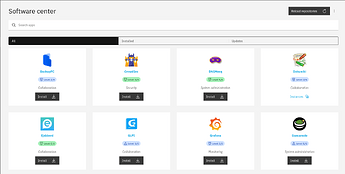Hi folks
We need to organize the apps currently present in the software center.
If an administrator wants to install an app, they must be clear about who created it and how robust it is, certified by others.
At the moment there is no clear path for certification, and I would like to create an howto to clarify the matter a bit ![]()
Characteristics/Requirements for an app to belong to one of the three categories:
- Official: Supported\Created and certified by Nethesis.
- Certified: Supported\Created by others but certified by Nethesis.
- Community: Supported\Created and certified by the community.
Software Center Checklist
Certification requirements valid for all to enter the Software Center - in NethForge/Default/Subscription repository:
- Does not break anything.
- Does not crash during usage.
- LDAP integration (if possible).
- Optional backup/restore, but if included, must work well.
- Functional clone/move.
- Functional update management.
- Translation support.
- In the About page:
- Contact information for the supporting company/person (name, website, email).
- Links to the original project and app’s source repository.
- Link to the manual/documentation page.
- Clarification on support duration, update management, and upstream upgrade (update frequency, major release).
App Info page
The App Info page of each app in the software center should display:
- The list of certified requirements.
- The certifier (Nethesis, another company, or entity).
- Author.
- Version date.
- [Number of installations / Rating].
Staging (Level 0)  :
:
Apps created by the community and residing in authors’ personal repositories:
- Not required to meet the Software Center Checklist.
- Each app generally has a reference discussion in the App category.
- These apps remain outside the Software Center; we assume no responsibility for their functioning.
- Level 0 because it has no entry barrier; creating a new topic and providing installation information is sufficient.
Community (Level 1) 
Apps produced by the community and authorized to enter NethForge. It’s a sort of community self-certification with minimum requirements:
Must meet the Software Center Checklist.
- Tested and certified by (at least 2-3?) community members.
- Support from the app creator in the community ( with link to the reference discussion).
- App entry in the manual’s table (generated by PR or automatically).
Certified (Level 2) 
Apps produced by third-party (e.g., Software Company Name) but certified by Nethesis (Or people on our behalf).
Requirements:
- Developed and supported by another company.
- Request for a manual page with essential information.
- It must be clear:
- who to ask for support.
- how long the app will be supported
- how updates will be delivered.
Official (Level 3) 
Apps produced by Nethesis and certified by Nethesis. Includes Software Center Requirements + Level 1 + and Level 2 requirements. Developed and supported by Nethesis, e.g. WebTop, NethVoice, NethSecurity Controller.
- Request for a comprehensive manual page.
- English and Italian translations.
What do you think?
